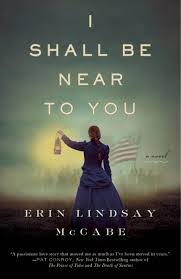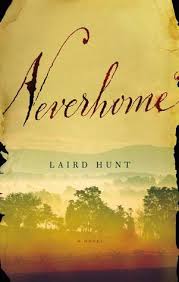One of the books I’m writing now has a slight “Civil War” bent. (More about my new crafty-mystery series later!) I always said I’d never write a Civil War book. And I’m really not—even though the book I’m writing is about a Civil War Medal of Honor Awardee (Jefferson Coates.) His story is about what happened to him during the war and his triumph over it. So I need to understand, in depth, the parts of the war he fought in and what exactly happened. More on Jefferson soon. I promise.
I’ve done a lot of nonfiction reading at his point, but I also read fiction as part of my research. I thought I’d share two novels I read. I think historical fiction readers should check them out. Both are great reads.
Both books featured women who went off to war disguised as soldiers. We all know now that there were many women who did this—for whatever reason. Several made names for themselves. Others are just now being discovered and celebrated. It’s estimated that between 500 and 1,000 women went into the war disguised as men.
In “Neverhome,” by Laird Hunt, the story begins with a married couple living on a farm. When the War of the Rebellion starts, they feel the farm should be represented—as a matter of pride and honor. The only impediment is the male half of the couple is rather sickly, whereas the woman is strong and vibrant. (How cool is this?) She talks him into allowing her to represent the farm in the war. One of the interesting modern components to this story is that the main female character has a lesbian affair while she is away and lost from her batallion. She does go back to her husband at the end of the book. But she thinks seriously about staying with her lover. The book doesn’t have a happy ending, necessarily, and I don’t want to give out spoilers here. But I liked this lesbian-affair device because so often in mainstream historical fiction about things like the Civil War, writers tend to grandize and homogenize. (I always wondered about the gay folks. Is it just me?)
 Interestingly enough, the other book that I read recently, “I Shall Be Near to You” by Erin Lindsey McCabe, also has a gay person in it. The story begins with a newly married couple. He goes off to the war and she decides to follow him. She goes into battle with her husband. She curls up with her husband in the tents, under the stars, and so on. They don’t have “alone time” frequently—there are always others around—but every once in awhile they sneak away. (I do love a good sneak.)
Interestingly enough, the other book that I read recently, “I Shall Be Near to You” by Erin Lindsey McCabe, also has a gay person in it. The story begins with a newly married couple. He goes off to the war and she decides to follow him. She goes into battle with her husband. She curls up with her husband in the tents, under the stars, and so on. They don’t have “alone time” frequently—there are always others around—but every once in awhile they sneak away. (I do love a good sneak.)
I’ve never found romance in the Civil War. I mean after “Gone with the Wind,” where is the romance? Right? But I love the idea of following your husband into war—very romantic and something I found relatable. The main character (a woman) in this book also spots other women disguised as men along the way. There were so many more than I had realized and there’s plenty of new books out there detailing the heroic women of the Civil War. In the book I’m writing, my main female lead will not follow men in to battle. She will do what most other women did: stay at home and support the soliders in countless ways. (My book is based on a true story, so this part must remain.) But make no mistek the women left behind had their own battles to fight.
My next batch of reading will be fiction about homesteading and the prairie. I think certain truths are only communicated through fiction. After Jefferson spent some time at the Philadelphia Institute for the Blind, he went home to Wisconsin, opened a broom shop, but then married. He and his new wife decided homestead in Nebraska. Can you imagine? Interesting isn’t it?

